It was Culture Week in Colmenar. I have no idea what that means. It's an odd word, culture. Can be off-putting to some. Can mean completely different things to different people.
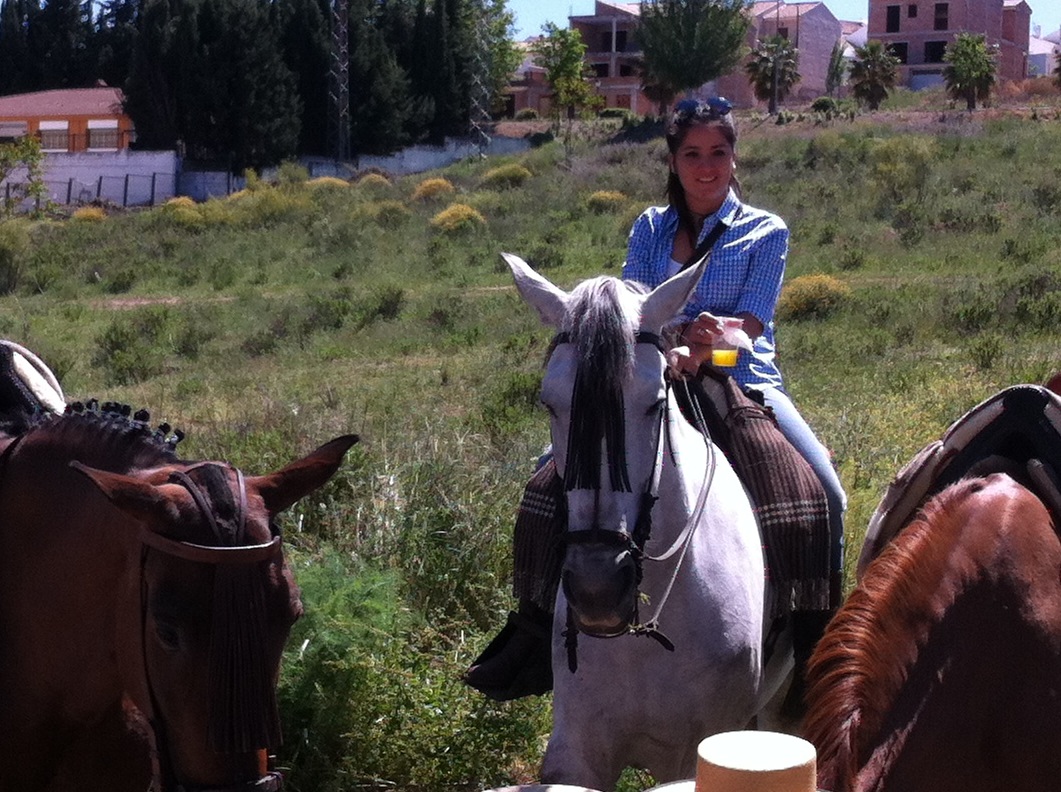 There was a photography competition. There was a young people's walk. Some children's flamenco dancing. The "Paint-it-in-a-Day" competition (see last year's blog on art & life). A day when neighbours sat at long tables in the swimming pool patio to share plates of embutidos and porra. And the Romería came to town at the weekend with horses, carriages, dark-eyed gypsy girls.
There was a photography competition. There was a young people's walk. Some children's flamenco dancing. The "Paint-it-in-a-Day" competition (see last year's blog on art & life). A day when neighbours sat at long tables in the swimming pool patio to share plates of embutidos and porra. And the Romería came to town at the weekend with horses, carriages, dark-eyed gypsy girls. 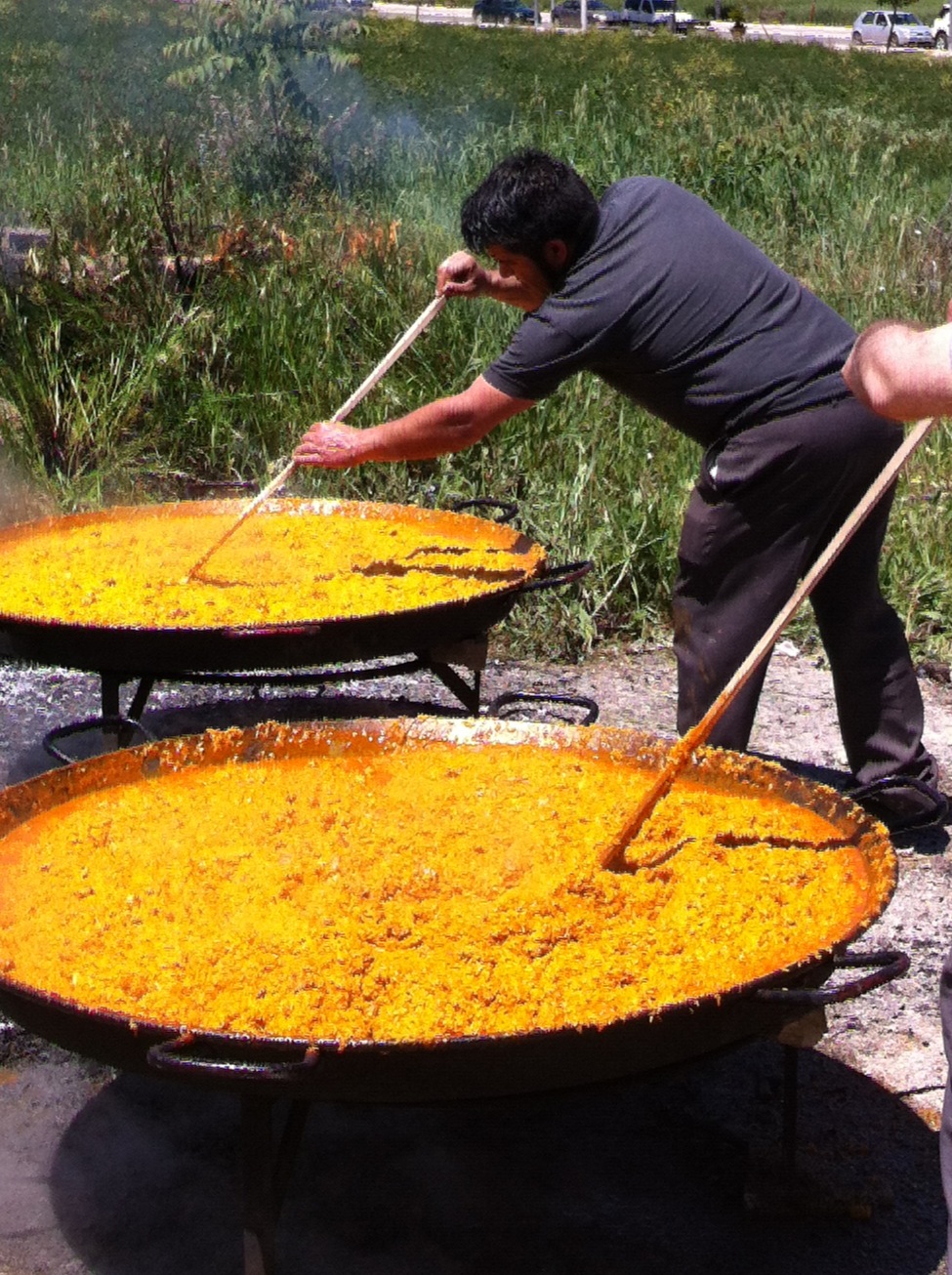 Paella cooked by Miguel and served by Pedro, the mayor. Colmenar is small enough to have that culture of working hard, working together, to create special village events.
Paella cooked by Miguel and served by Pedro, the mayor. Colmenar is small enough to have that culture of working hard, working together, to create special village events.
Last year I wasn't quick enough at the end of the painting day to secure the one I really wanted. This year I was on edge as the prize-winners were announced (the paintings that win cash prizes are then owned by the Ayuntamiento and the sponsors), and as soon as the last prize was called out I sprinted across the plaza to find the painter I'd watched during the day. He should have won a prize - but I was glad he hadn't as the "Se Vende" sign was up and we began to haggle. He wanted the 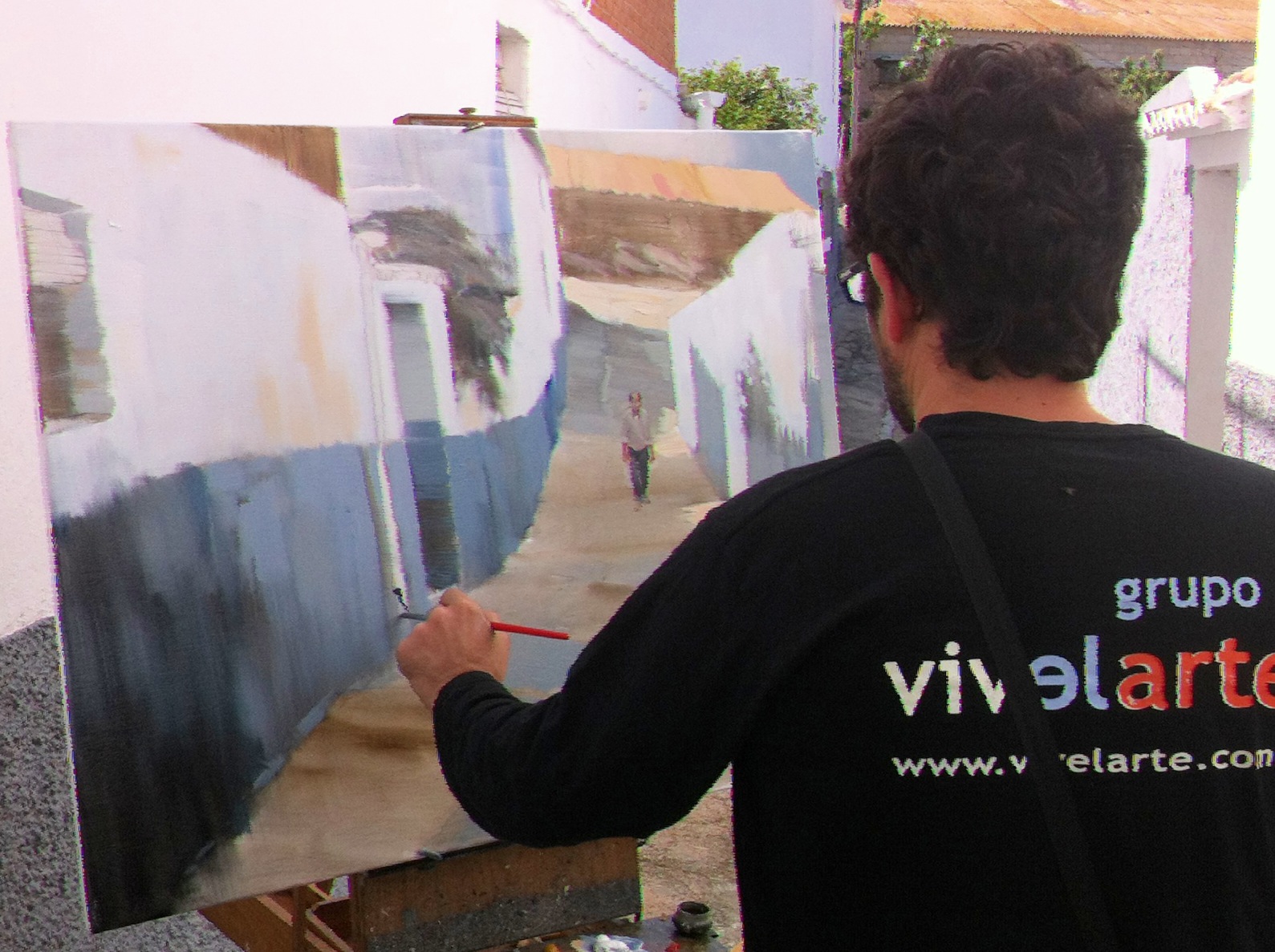 same price as the prize-winners, so (feeling a little harsh) I pointed out that he hadn't won! I also pointed out that another painting had six people round it bidding each other up. "Look around" I told him. "There's only me!" Grumbling a little he accepted my offer. I hadn't beaten him down TOO much but later, admiring my purchase, I felt a bit guilty. Culturally-speaking, artists add enormous value to our lives and are usually under-valued and under-paid. But a sale is a sale and I suspect he was more content with our deal than he was letting on! My little piece of Colmenar culture will hang in the entrada.
same price as the prize-winners, so (feeling a little harsh) I pointed out that he hadn't won! I also pointed out that another painting had six people round it bidding each other up. "Look around" I told him. "There's only me!" Grumbling a little he accepted my offer. I hadn't beaten him down TOO much but later, admiring my purchase, I felt a bit guilty. Culturally-speaking, artists add enormous value to our lives and are usually under-valued and under-paid. But a sale is a sale and I suspect he was more content with our deal than he was letting on! My little piece of Colmenar culture will hang in the entrada.
And in the middle of this week of culture was what looked like a seriously cultural day. A visit to Córdoba for the famous Patio Festival. With a great group of friends, and guided by Rafa who was born in Córdoba, it was always going to be a very pleasant day. As it turned out, it was so much more than that. By going the weekend BEFORE the official start of the patio festival, we got Las Cruces de Mayo as well - the crosses of May. And here's something odd. The patio festival is not a religious festival at all. Yet there is no alcohol involved, and no singing and dancing in the streets. Las Cruces de Mayo is very definitely a religious festival. And each beautiful floral cross is set up by one of the cofradías (brotherhoods) of the city, either beside their church or in a nearby plaza. And the cofradía ALSO sets up a pop-up bar in the street nearby! And, given that this is Spain, where there's a street bar there will pretty soon be music and spontaneous flamenco dancing. It’s an innate part of the culture.
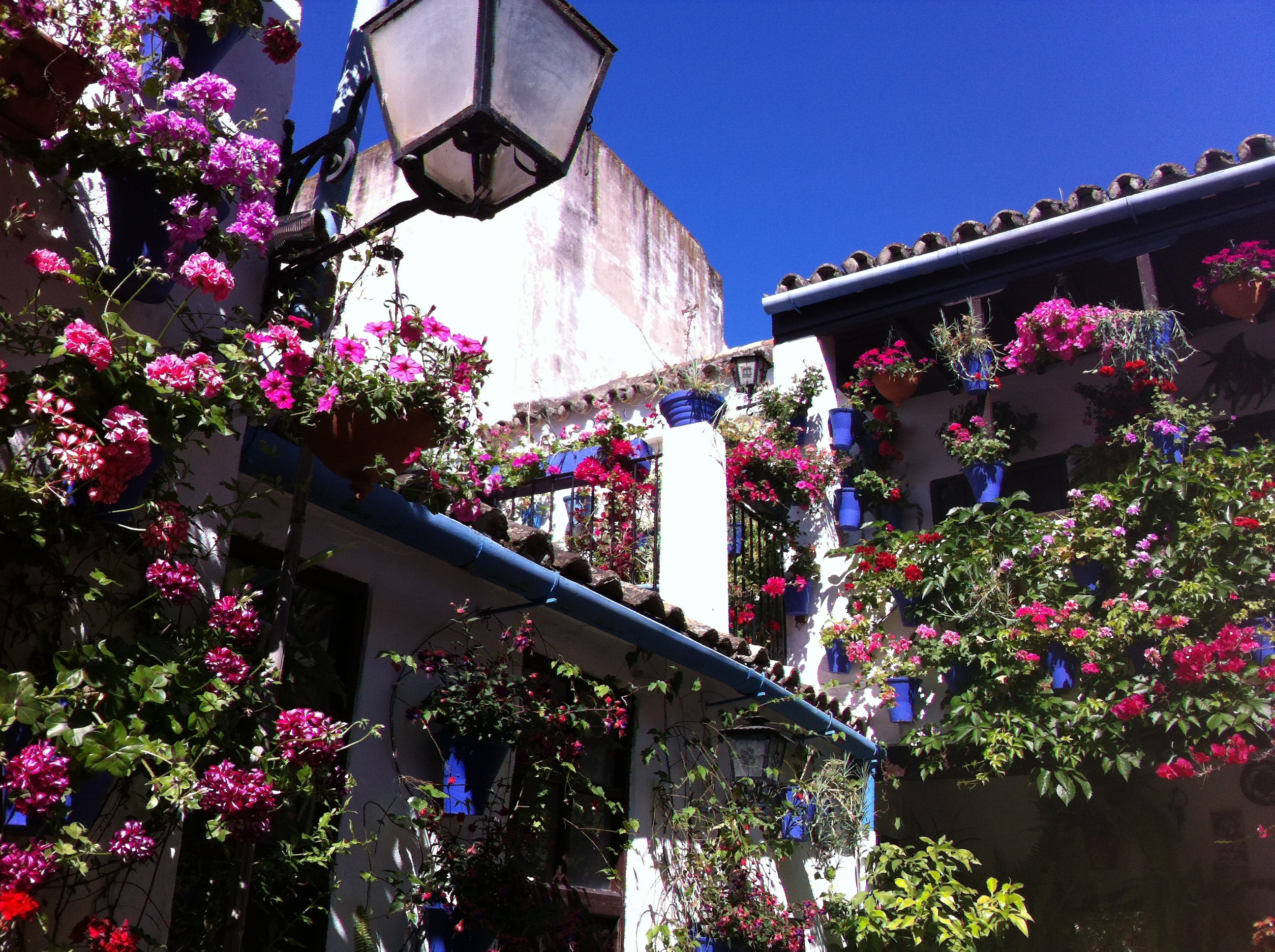 So our day in Córdoba began with a tour round the old town, joining a variety of long and short queues to admire the stunning private patios, opened just in May for the public to see and take inspiration from. Extraordinarily beautiful, over-the-top, and a glimpse into another world. A culture of families and flowers, patios and pride, community and competitiveness.
So our day in Córdoba began with a tour round the old town, joining a variety of long and short queues to admire the stunning private patios, opened just in May for the public to see and take inspiration from. Extraordinarily beautiful, over-the-top, and a glimpse into another world. A culture of families and flowers, patios and pride, community and competitiveness.
Then, as the patios closed at 2pm for their break, we moved onto a tour of the crosses. And the street bars. And the tapas. Oh the tapas! At our first stop in the magnificent Plaza with its views of the Mezquita and the Roman Bridge, its impressive floral cross, and its cofradía-run pop-up bar with hordes of happy, relaxed Spaniards, Rafa and Lourdes staggered back to our barrel with a mountain of pimientos padrón, berenjenas and various other platos. A chica in her wedding dress went round exchanging gifts for kisses, and the music drowned out the songs floating over from the next plaza.
Then another cross. And another bar. A group of singers, and an invitation to a party. Another cross. Another bar. More tapas. A group of girls broke out into dance. A chat with some local chicas - we exchanged fans. Another cross. Another bar. A tiny plaza, crowded, and everybody singing. Church-sponsored binge-drinking, except nobody seemed drunk - the culture of alcohol in Spain is more mellow, more about sharing the moment, sharing the fun.
For many of us immigrants, this is the culture of Spain. For me, standing round a barrel in Córdoba sharing tapas and San Miguel with Lourdes, Maria-Jose, Emma, Rafa and Sandy summed it up pretty well. Then yesterday in one of my regular bars, chatting with my neighbour Rafael and his fellow-farmers, we discussed what they think is the culture of Spain. Their answers were very different. None of the words we would put on the list were there. They didn't mention flamenco, bulls, tapas, or sunshine. They talked about the land, the work, the family, passing the land on to the next generation, looking after the older generation. We talked about their perception of the culture of the United Kingdom. They also used different words from those we would list. We laughed, recognising that the definition of "culture" depends too on who you are, and where you are.
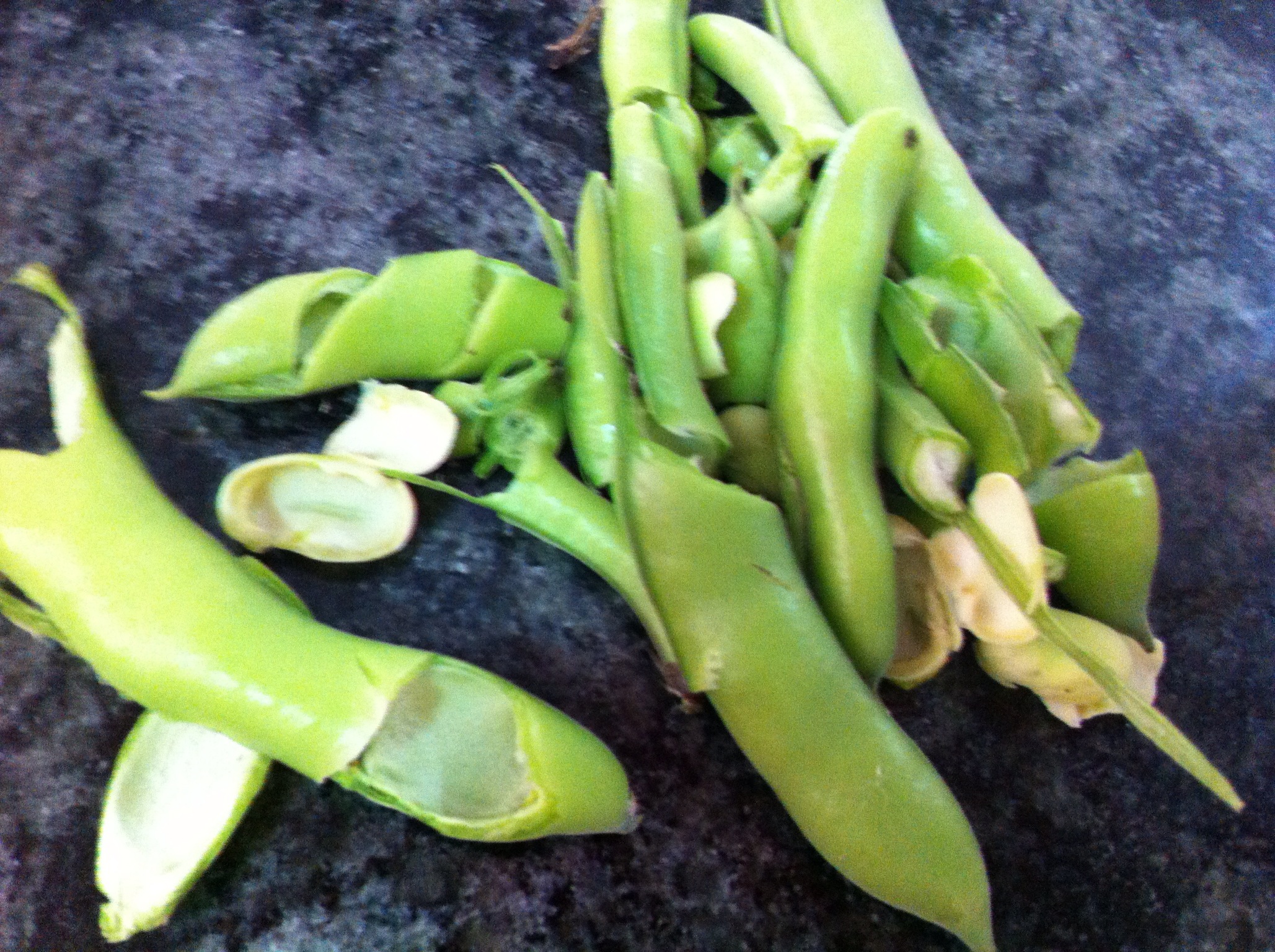 As we chatted, we were splitting open the haba beans (broad beans) they had brought in that morning from the campo, and eating the tender raw beans. Rafael explained that the shells too were good, fried in a tortilla. I cracked another haba, popped it in my mouth and asked Antonio for another round of drinks. Sometimes you can seek too hard to define something, without realising that you are right in the middle of doing it.
As we chatted, we were splitting open the haba beans (broad beans) they had brought in that morning from the campo, and eating the tender raw beans. Rafael explained that the shells too were good, fried in a tortilla. I cracked another haba, popped it in my mouth and asked Antonio for another round of drinks. Sometimes you can seek too hard to define something, without realising that you are right in the middle of doing it.
© Tamara Essex 2014
THIS WEEK'S LANGUAGE POINT:
It’s jolly subtle, this language we’re learning. “Cómo están tus hijos?” How are the kids? But in a shop, “Cómo están las gambas?” is not an enquiry after the health of the prawns (which, let’s face it, is probably not great), but an enquiry after their quality. Used in markets, for instance, for products that vary in quality such as fruit and vegetables. And “A cómo están las gambas?” is an enquiry after their price, again used in markets where the price varies depending on the season or the day’s catch.
Buying a car from a neighbour? Important difference between “Es nuevo” – it’s new, and “Está nuevo” – it’s like new (but it’s not).